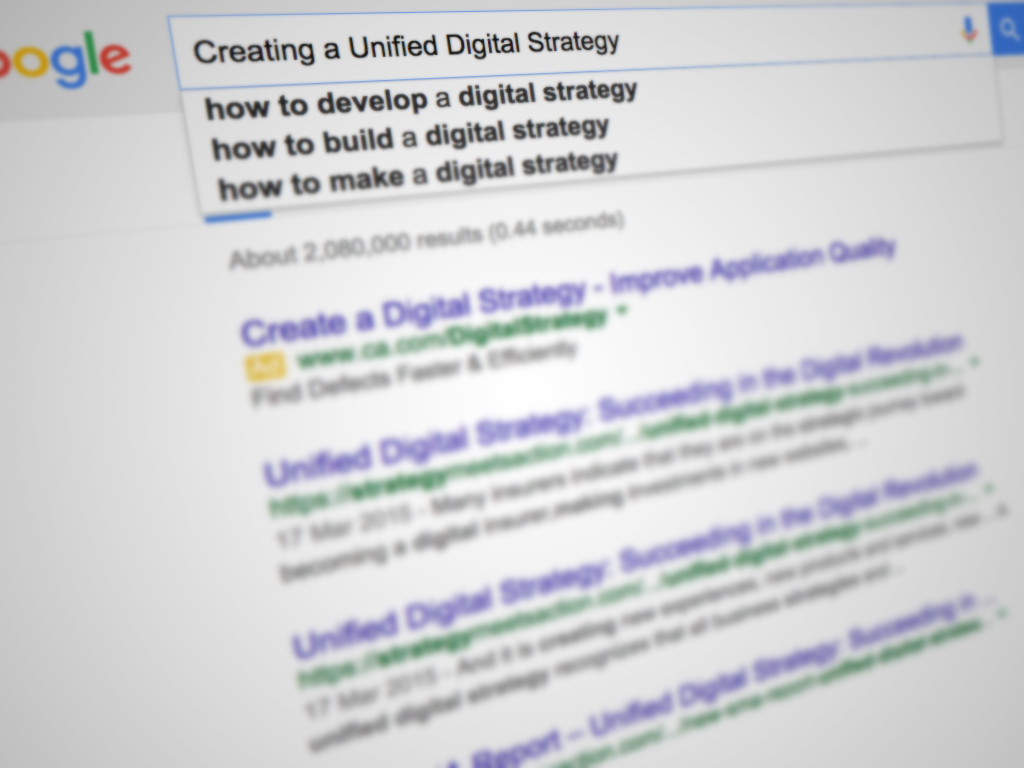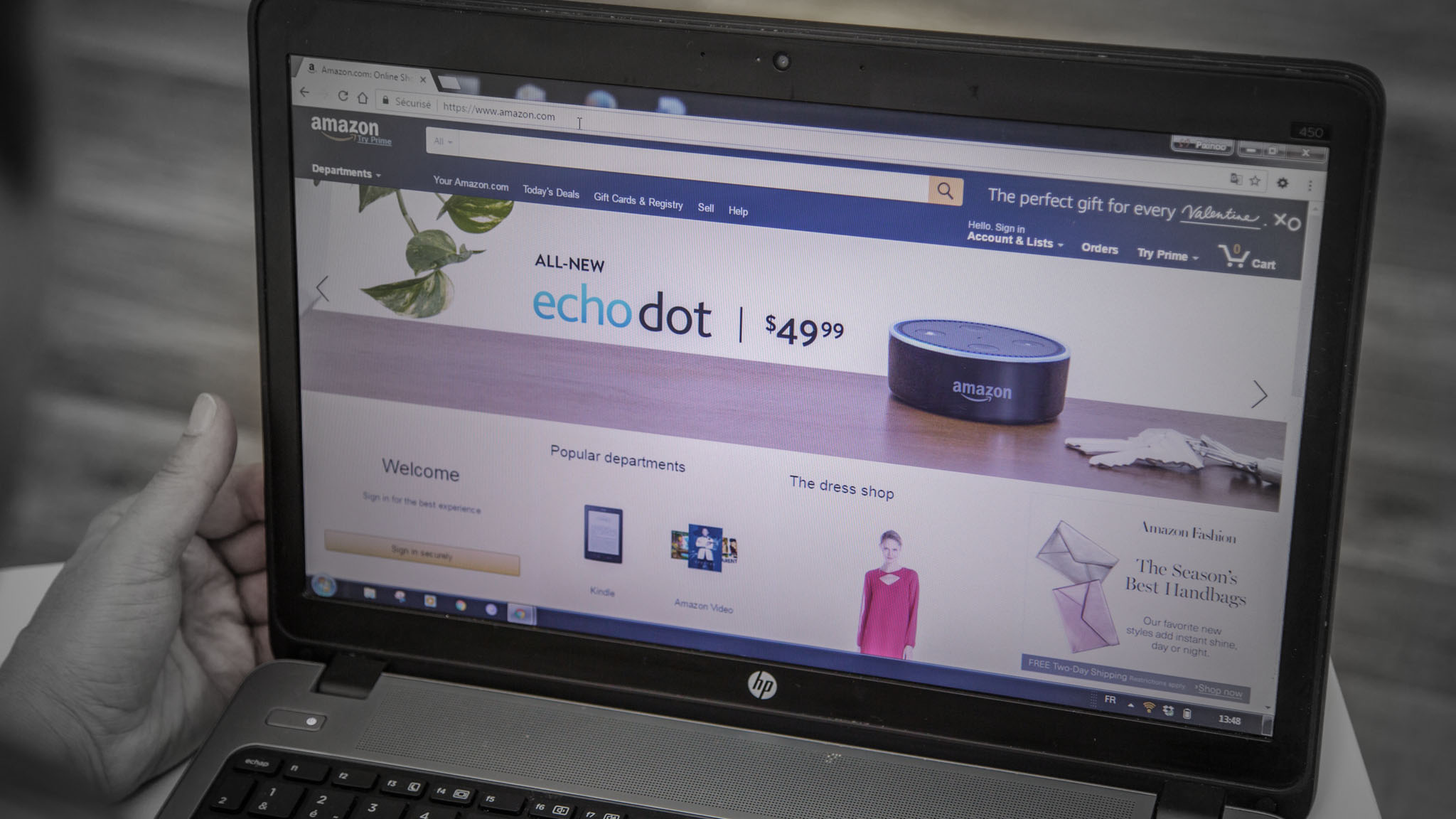A sustainable SEO strategy is not a simple checklist of tips and tricks. It’s easier to understand your audience than it is to understand search algorithms – the secret formulas search engines use to rank web pages based on what people search for. Therefore, to stay ahead of the algorithms and reach consumers at critical moments, you must focus on your audience. Create appropriate content that addresses their need. The rest will follow.
When people think about online marketing, they often think about how to stay one step ahead of Google – like a game of chess. But being strategic doesn’t mean trying to “beat” the search engine. It means working to understand where search engines like Google are headed, so we can work with them.
When you think about the type of digital business culture you want to create, the ultimate goal is proactive marketing, rather than reactive.
See, search engines are products, too. They are products of the companies that own them. And those companies have their own goals for their search engines.
Working to understand what those goals are can help you be more strategic in your approach when you’re playing in their sandbox.
How Algorithm Updates Factor Into Strategy
Google is a business first, one that makes billions of dollars off its search engine.
To ensure it provides the best search results, Google places a high priority on the user experience. One of Google’s core philosophies is: focus on the user and all else will follow.
Google performs hundreds of algorithm updates per year, many of which go unnoticed. Sometimes, however, algorithm updates have a big impact on sites.
Most of the updates Google makes to its algorithm are meant to improve the user experience by delivering a better product (the search engine itself, and the results).
Following the meaning behind the algorithm update helps us plan for what’s going to be important to search engines like Google.
A strategic professional looks to the history of Google updates to forecast what will continue to be important in the future. Because user experience is often at the forefront, if you’re optimizing for your audience, then you’re on the right path.
Go Where Google Is Going
It’s critical to pay attention to where Google is heading.
Ultimately, there is no way to stay ahead of the hundreds of changes to Google’s algorithm. The best way, then, to stay ahead of the algorithm is to stop trying to figure out the algorithm.
As a digital business, you must try to understand and focus on why Google shows the results it does and how it displays the search results relative to your audience, the keywords you’re tracking, the people you’re targeting, and the intent.
The search results display is a unique layer on top of the algorithm. Based upon where a person searches from, what they’re looking for, their search history, and how Google is interpreting what they’re trying to do, Google may pick any number of different pieces of information to display to an audience.
Trying to game the algorithm won’t get you anywhere. Where you’ll find the greatest organic search opportunity is in understanding why Google thinks a piece of information, or the way the search results are displayed (e.g., inclusion of images, news, or shopping), is important to your audience.
Google has done a pretty good job over time forecasting their direction, if you pay attention. It’s foolish to decide that “you haven’t been caught yet,” so you won’t make any changes.
Take some time to understand the meaning behind some of the more infamous updates in recent years, and you’ll begin to see a pattern of what’s important to Google.
Audience First
You may have heard that the key to ranking #1 in Google is to create an amazing website filled with informative and valuable content.
Forget all the junk about “rankings”. Talk to your audience through your content in a way that is best for your audience.
Google always tries to put the user first. They want their search results to include the best content for their audience. Create the best content so
Google sees fit to display it to their audience. You must learn how to talk to and write for your audience, especially if it’s a niche audience (e.g., PhDs or mommy bloggers). You shouldn’t care if you don’t speak to a wider audience.
Brands or businesses that fail to create valuable pieces of information in a way their audience can consume should expect poor results online.
Create Valuable Content
You want to create content that’s right for your audience and distribute it through the appropriate marketing channel. Don’t worry about distributing through all channels. Talk to and through the relevant channels.
Content might not be written words. If your audience is largely on Pinterest, then creating valuable Pinterest boards might be the way to go.
Content aids consumers at every stage of the purchase funnel – from discovery, to lead nurturing, to conversion. To create lifetime value, think in terms of the entire decision journey, not just those in purchase mode.
In the end, the algorithm will do whatever the algorithm does and the search display will do whatever the display does. But if a query is a representation of your audience, and the intent in which the audience is trying to discover is relevant to your brand or businesses, and you do that well, you’ll be able to service an appropriate level of your audience through rankings.
Forecasting Change And Moving With It
If your organization isn’t prepared for the coming changes, you will constantly be chasing the algorithm.
Focus instead on how you can better understand the needs of your audience. Follow where the technology is taking us. Plan to be a part of that.
Look at the way society is evolving, and how younger generations will shift the online experience with their expectations. Do this, and you can prepare a brand that is relevant online for years to come.
Finally, always aim to be in compliance. Search engines like Google are mass distribution models that sustain many businesses. To be a part of that, you need to play by their rules. Remember, your brand or business is benefiting from their audience.
Key Takeaways
- Most of Google’s algorithm updates are aimed at improving the user experience and the product itself: the search engine. Companies like Google aim to have a relevant and useful product for its users.
- By understanding what’s important to Google and where technology is headed, you can make strategic, proactive decisions in digital business.
- Forecasting change that will affect your strategy goes beyond the search engines. Think about where technology is headed and how users want to search and interact online.


